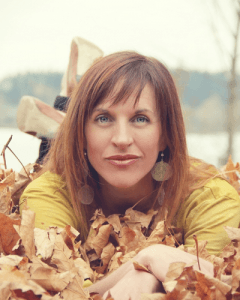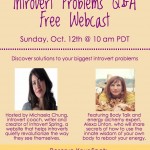
The following is a guest post by BodyTalk and energy alchemy expert, Alexa Linton.
I like to think of our energy like a bathtub full of water. Preferably this bathtub is full or close to it, meaning that we feel vibrant and we have lots of energy to spare for the things we love to do. The reality is a little different. Most of us have some pretty damaged energy bathtubs without a whole lot of water in them.
Some are empty or almost there and as a result, we feel exhausted and drained, without the energy to live our lives in the way we want to. This may show up in our lives as overwhelm, burn out, plodding through our days with no spark to speak of, or even dis-ease, pain or illness. So what gives? Why are most of our bathtubs looking and feeling a little worse for wear?
Well, let’s stick with this bathtub metaphor for a little while longer. You see, there are a few key things that can drain our bathtub, often without us realizing it’s even happening. Whether its a big hole punched in the bottom or a tiny pinprick, an energy drain is an energy drain.
The reality is that, especially as an introvert, you are at your best when you are not draining off energy to places where it is not being used effectively or where it is actually working against you.
So let’s discover the five main areas where energy leaks happen so we can start to change that!
1. Checking in on the adrenals.
Years ago, I was working with a client who had spent her life taking care of everyone and everything else. Can you relate? She was finally debt free, retired and living on her own in her sixties after raising two children single-handedly. When I asked her to check into her adrenals energetically she laughed, saying they looked like little mexican jumping beans.
When we gave these endocrine glands, in charge of everything related to survival, permission to relax, she exclaimed “they’ve just fallen over and they can’t get up!” And that is how most of our adrenal glands are feeling. These little glands are often on overdrive and act up whenever there is something our mind perceives as a stressor.
Notice how I said perceive? The truth is that stressful looks different for each person. In order to stop this drain on our energy it is essential to take a good look at how fired up your adrenals are on a daily basis and if necessary give these little fellows permission to chill out and stop launching into a flight/fight response every few minutes.
A supplement for adrenal support can go a long way towards replenishing you and your adrenals for years to come as can a regular relaxation practice such as yoga, meditation or my favourite, regular massages! The more you make the relaxation of your adrenal glands a priority the happier and more energetic your whole body and mind will be.
2. Worry, worry, worry.
Yes, these may just like tiny pinpricks in your bathtub of life, but even pinpricks can be a major energy leak over time. Most of us have heard multiple versions of the phrase “worry is as effective as _________ (insert very ineffective thing here)” but it still doesn’t stop us from doing it.
We find ourselves lying awake in the middle of the night thinking incessantly about a problem that we realize hours later we can’t solve no matter how hard we think about it. Our we worry about something we have no control over at all. Or we think of all the absolutely terrible outcomes of a certain worrying situation (and our minds can think up some fairly brutal scenarios).
Yes, worry is definitely a drain on our energy sources. But what can we do about it? First, if you are a worrier, learning to ground is a powerful way to get into your body and out of your head. My favourite way to ground is to imagine I am a tree with deep and powerful roots right down into the earth.
As soon as I imagine that, my energy has shifted from being entirely in my head, like a swarm of bees, to in my body where I can use it to be aware of something vitally important – the breath. Your breath is an essential tool in shifting worry and stopping the drain.
In fact, the diaphragm (the large muscle under the ribs that aids with the breath) can be thought of as the body’s emotional garburator, processing all of our emotions and either turning them into wisdom or letting them go. So when you focus on using it to do just that, all that worry can head right in there and you can synthesize into great compost/aka wisdom!
3. Our beliefs are our biology.
Here’s something crazy to ponder. Each one of us carries around countless beliefs that affect how we behave, how we think and how we feel about every experience we have. And these beliefs are usually unconscious, meaning that we have very little, if any awareness of them being there. Plus, they can actually be paradoxical, meaning that you can have two belief systems that are completely opposite.
For example, if you’ve been saying an affirmation daily that “I am supported by the universe” but as a child you developed a belief that “The world is a dangerous place” these beliefs are going to butt heads and generally the childhood belief wins out.
When every experience and person is seen through a lens of “the world is a dangerous place” it causes a big energy leak because you don’t feel safe and unfortunately, that very belief lends to not great things happening for you. So how do we change it?
Thankfully, there are some incredible healing modalities out there that work specifically with these deep-seated beliefs so they no longer need to run your life without you knowing it.
BodyTalk, the modality that I work with is excellent for shifting them, as is Psych-K, EFT, hypnotherapy and many more. You’ll be absolutely amazed at how your life shifts and your energy levels increase when your beliefs about you and your world change.
4. Unresolved trauma.
This one is what we might consider to be the culprit behind the huge holes in our energy bathtub. When we experience a trauma, the first thing that happens is that it is processed by the liver and the liver meridian to see what needs to be done with it.
If we don’t have the tools available to us at the time to work with it, it gets stored somewhere in the body to get dealt with later. This can mean a few things.
One is that the area where it is stored away becomes weakened and can be prone to injury and/or dis-ease. Two, this memory is stored in the cellular memory and is triggered by similar events. This means is you were in a car accident when you were five, your cells will remember and be re-triggered when you experience a similar feeling or sensation (eg. seeing a car accident in a movie).
This re-triggering may cause similar emotions, sensations (even pain) and many times, a re-traumatization of the body leading to mobilization of the flight/fight systems and/or an emotional over-reaction. Saying that this is an energy leak is an understatement.
The trouble is that the majority of these traumatic experiences are tucked away in the subconscious mind away from our conscious awareness or they are from childhood or even fetal life and out of our realm of recall.
So how do we work with them? This is one of the reasons I love working with BodyTalk. As a BodyTalk practitioner I am able to go back into the cellular memory and work with these events, clearing the emotional charge that is creating the drain.
The breath can work wonders as well as deep and mindful breathing can connect us to these events and be a tool to work through the emotions surrounding them. It is definitely best to people you trust in a safe and supportive space if possible when you are doing this deeper work. We fortunately live at a time where we have access to powerful modalities and tools to heal trauma and find our vibrancy again!
5. What scares you?
Believe it or not, our fears are a major energy leak, tantamount to small but mighty holes in our energy bathtub. This is because the natural energy of fear is contraction which means not only adrenal fatigue, but tension, lack of clarity and focus and a general feeling of dis-comfort and dis-connection. And fear is one of those things that all of us have. I have yet to meet a person who doesn’t and if I did I probably wouldn’t trust them!
Fear is an absolutely natural response and is an important feedback system to keep us safe. The trouble happens when we fear even those things that are not dangerous to us (but our brain and body think that they are) and are in fact helpful to us. For example, when we fear success because we fear rejection and judgement and being different from everyone else in our circle. Can you relate?
Alright, take a moment to breathe. Phew. Yes, fear gets all of our survival systems in high alert and makes us very very tired. How do we work with it? Well, first we need to ground ourselves and get in our skin, or in other words we need to become connected to how we feel.
This is because the biggest helper when it comes to fear is our awareness. We need to become aware of the rising tension levels in our body, the constriction and quickening of our breath, the change in temperature and even the shift in our thoughts when fear enters the picture.
From this point of awareness we are able to draw our attention to the breath, release tension with help from the out breath and begin to relax the mind. This is where a daily yoga and meditation practice comes in very handy!
If the fear is over the top and untouchable with these daily practices, you may want to consider working with a practitioner or counsellor to start the change from the inside out. Either way, working with our fears can be a potent way to positively transform our energy levels and our lives!
There we go! Five areas of your life where you can make simple shifts to create more energy, vitality and health. As an introvert where restoring and renewing energy levels are essential, working with these areas on a daily basis can be profound and transformative. May your bathtub be full to over-flowing!
 A modern day cowgirl with a mission, Alexa Linton is known for lighting up her world with her infectious personality, bold and intuitive coaching style and her secret sauce, the BodyTalk System. When these forces combine, perceptions transform and lives change in the most fabulous ways. With over a decade working with horses as an Equine Sport Therapist as well as thousands of pets and people, Alexa has developed an instinctive style all her own. A fire-starter by nature, Alexa loves seeing people light up from within and their lives change miraculously as a result. It is her big mission to help woman live a life they love. Learn more at www.alexalinton.com
A modern day cowgirl with a mission, Alexa Linton is known for lighting up her world with her infectious personality, bold and intuitive coaching style and her secret sauce, the BodyTalk System. When these forces combine, perceptions transform and lives change in the most fabulous ways. With over a decade working with horses as an Equine Sport Therapist as well as thousands of pets and people, Alexa has developed an instinctive style all her own. A fire-starter by nature, Alexa loves seeing people light up from within and their lives change miraculously as a result. It is her big mission to help woman live a life they love. Learn more at www.alexalinton.com











I’ve been doing some reading on bullying especially in the workplace and I’m wondering if Introvert’s would be more likely to get bullied? Does anyone have anything to say about this?
i would think yes since introverts are often soft spoken and can grow up shy because they feel overwhelmed by groups.
The answer to that is yes. I was bullied all the way from primary to the very last day of High School, not only by strangers & people that theoretically should have known better (adults & teachers) but also in front of other’s by my siblings, who’re supposed to look after their little sister. Moving on 40 years the world is a different place, I’ve realised that these people are extremely damaged & are projecting their own trauma & fears onto others that they perceive as weaker, which is sad but unfortunately largely how bullying works.
Thank you, Michaela, for introducing me to Alexa through this guest post. This article resonates with me on several levels. Following Alexa (and you) everywhere now!
You’re welcome Dawn! Happy you found us both. 🙂
Excellent article–according to this, I’ve been on the “right track” so to speak, in handling the energy leakages. Along with being an introvert, I also have fibromyalgia/chronic fatigue syndrome–which some researchers have attempted to link with trauma, either physical or emotional or both (the state of dis-ease). Although other researchers have started to study the genetic link, and no one really understands why one develops this syndrome, and I know many self-proclaimed extroverted people who also deal with this illness (for them, the isolation is torture), I wonder sometimes if it isn’t more common in introverts? Sort of the body’s response to the constant “fight or flight” required to be an introvert in an extroverted world. I would love to see a study…
Thank you for this Michaela, I looked at this article & the stuff on trauma & it’s ongoing influence, stood out for me. I believe that this year has been my year to look at what had been happening in my life in respect of the old trauma’s that though in my eyes I had dealt with them, I kept finding echoes of these reappearing every once in awhile in different guises, but essentially they are the same, because I’ve not been strong enough to realise that these trauma’s have been ingrained in my behavioural DNA/unconscious (so to speak), for most of my adult life, the hard part I think for introverts is to admit damage & try to find ways of managing/working with it. This year was a lesson around not backing down on things that were important to me & asking that people respect when I need “my space,” being a counselor/art therapist, self care is extremely important for me. Due to ill health the last few years, I’ve found myself dipping my toe in the water (so to speak) with a relative who was struggling with issues, but it got to a stage where she was constantly calling & really abusing my supportive approach, kicking my boundaries,(apart) with little or no regard for my life & the things that I had going on in it. It also reminded me of my family of origin’s abusive behaviours, which suggests that all that good work that I thought I’d done years ago came back to torment me. I needed to revisit & refresh my defences so as to protect my sensitive nature from this “loving” relatives efforts. So I found myself going NO More, I have taken a huge chunk of time for myself & the self reflection has been what I’ve needed for so long. This Christmas I’m going to Shabbat Friday evening at my good friend/neightbour’s place & spend time alone on Christmas as I feel this is what I need, I actually feel good about it for the first time I think in my adult life. So it’s good for INFJ to make these choices that go against the grain, for our own, mental & physical wellbeing.
This Article was amazing and so very helpful !!